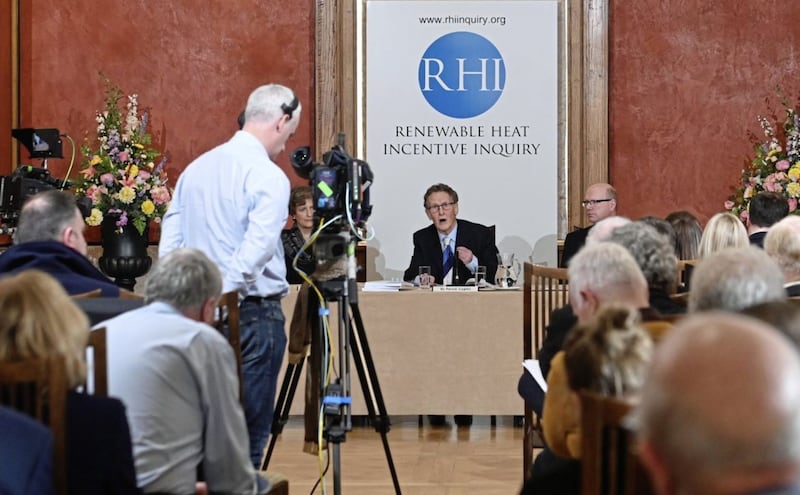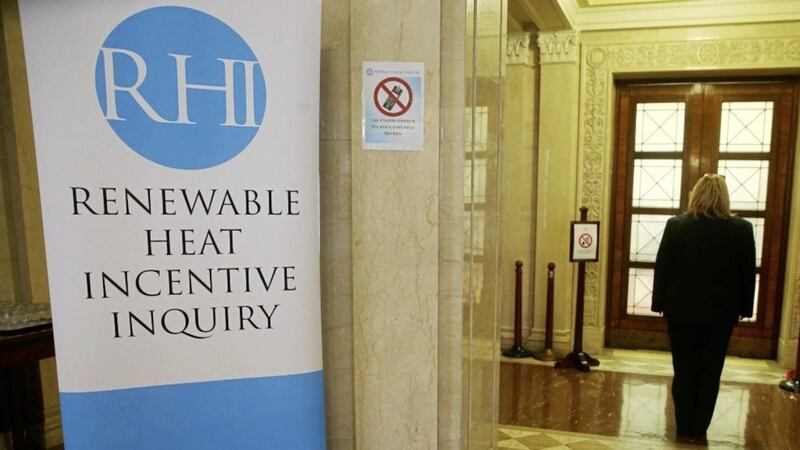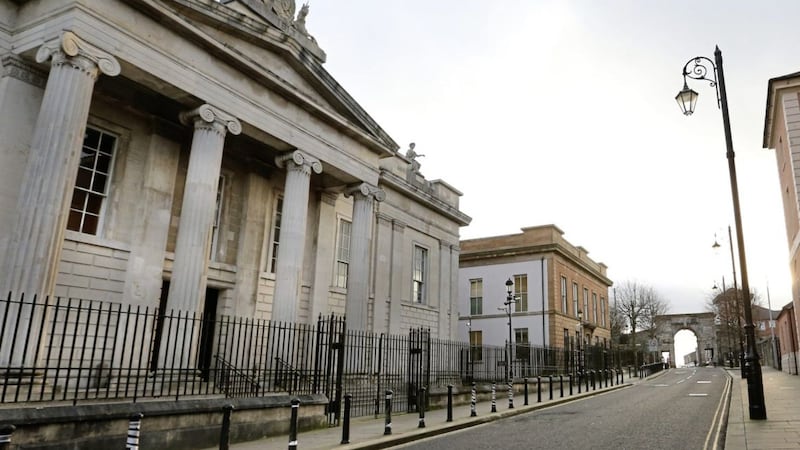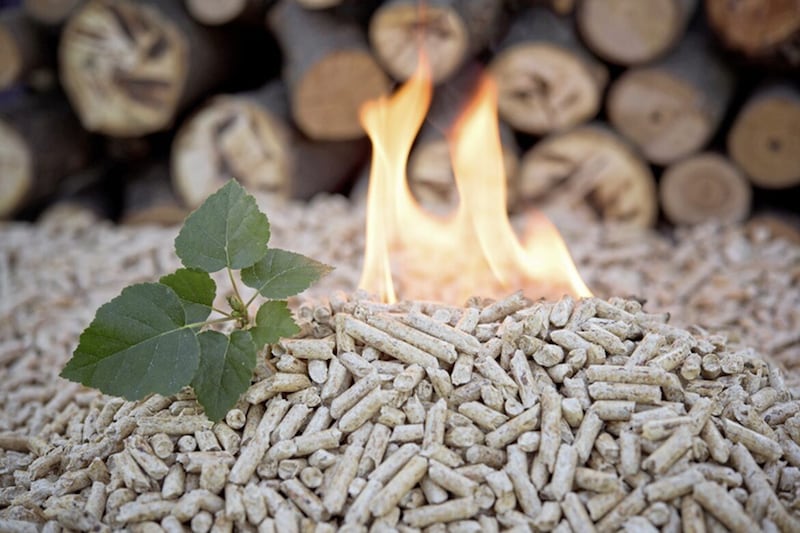Northern Ireland's Auditor General has expressed ongoing concerns over the Renewable Heat Incentive (RHI) scheme despite a dramatic reduction in costs.
The green energy scheme became mired in scandal in 2016 when it emerged it was at risk of overspending by millions.
It sparked a political row which led to the resignation of former deputy first minister Martin McGuinness in January 2017 and the paralysis of Stormont for three years.
A public inquiry made some criticism of First Minister Arlene Foster's role in developing the scheme and also highlighted "unacceptable behaviour" by several of her party's special advisers.
[ READ MORE: Timeline of the RHI scandalOpens in new window ]
But the probe, chaired by retired judge Sir Patrick Coghlin, said it would be wrong to blame specific individuals or groups for the design flaws that saw applicants "perversely incentivised" to burn excess heat to turn a profit.
The inquiry report earlier this year made 44 recommendations.
In his annual audit of financial statements of the Department for the Economy - which runs the scheme - Auditor General Kieran Donnelly said he has been asked to monitor and review progress around the recommendations.
Mr Donnelly said the cost of the scheme fell from £21.1 million in 2018-19 to £3.8 million in 2019-20 following significant changes to the tariff paid to applicants.
However, he said in the last financial year some £40,000 was overpaid to some applicants, and he also expressed concern around the "overproduction of heat" and "failure to provide accurate information regarding the heat use".
The Auditor General's report shows a decrease in heat output by those involved with the scheme from 683,582MWh across 2,128 installations in 2016-17 to 305,607MWh in 2019-20.
"The current level of heat generated is now more in line with what was envisaged by the department at the outset of the scheme," he said.
But Mr Donnelly said while progress has been made in inspections, "issues are still being identified such as the overproduction of heat and failure to provide accurate information regarding the heat use".
He said by March 31 2020, some 750 sites (almost 70% of installations) had been subject to a site visit or desk audit.

Mr Donnelly said the coronavirus pandemic has caused site inspections to stop but added the department aims to complete them by March 2021.
He noted a £22.2 million underspend by the department on the scheme in 2019-20, which he described as "not unusual across government".
Mr Donnelly said incorrect tariffs (due to rounding of annual inflationary uplifts) were applied to a number of the RHI technologies since April 2019, resulting in a total amount of £40,000 being overpaid to some applicants.
"On the basis that the recipients could not be expected to know that they were being overpaid and that any attempt to recoup the overpayments would not be cost effective, the department has sought and been granted approval from the Department of Finance to write off this overpayment," he said.
The Auditor General went on to refer to a commitment in the New Decade, New Approach deal from January 2020 which commits to the closure of the RHI and replacement with a new scheme.
"The department is currently developing an Energy Strategy for Northern Ireland which will include policy to support the achievement of the UK Government's legislated target of net zero carbon by 2050," he said.
Concluding, Mr Donnelly said he qualified his audit opinion again this year for the same reasons as the last four years, by finding an ongoing weaknesses in controls in the non-domestic RHI scheme and expenditure incurred without the necessary approvals in place.
"While costs have again reduced in 2019-20 because of the introduction of the revised tariff in 2019, I was still unable to obtain sufficient evidence that the controls over the spending on the non-domestic RHI scheme were adequate to prevent or detect abuse of the scheme as issues are still being identified as part of the ongoing inspection process," he said.
A Department for the Economy spokesperson said: "Cost controls have been implemented in the non-domestic RHI scheme to ensure that the scheme operates within budget and there is no incentive to overproduce heat whilst promoting energy efficiency.
"By the end of this financial year (2020/21), completion of the programme of 100% inspections and the outworking of ongoing compliance actions in combination with the reduction in tariffs will provide additional controls to prevent and detect any abuse of the scheme.
"The department is currently taking forward work towards closure of the scheme in line with the commitment detailed in the New Decade, New Approach deal."








